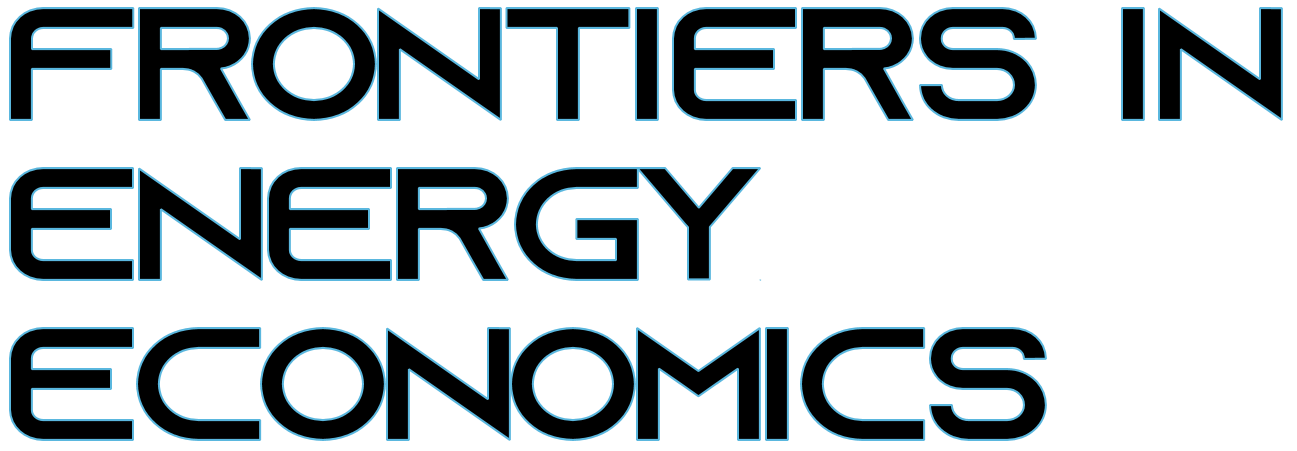PEER REVIEW PROCESS OF THE FRONTIERS IN ENERGY ECONOMICS
Initial assessment
The peer review process is a fundamental part of research publishing. This process both the editorial board of the journal of “Frontiers in Energy Economics” and independent expert reviewers, who evaluate the submitted articles. Peer reviewers can recommend whether or not they believe an article should be accepted or rejected by the journal. The ultimate authority to make the final decision rests solely with the journal of FEE’s editorial board. The editors of the journal of FEE adhere to the recommendations of COPE (Committee on Publication Ethics) when working with manuscripts, reviewers, and when organizing the review process. The editorial team verifies plagiarism using iThenticate software.
After an article is submitted to a journal, a journal editor screens the manuscript and decides whether or not to send it for full peer review. Only after clearing the initial screening is the article sent to two or more independent peer reviewers. Editors will consider the following aspects:
• Is the manuscript good enough quality to be sent for peer review?
• Does it conform to the aims and scope of the journal and has it followed the style guidelines and instructions for authors?
• Does it make a significant contribution to existing literature?
Unsuitable articles may be rejected without peer review at the editor’s discretion. If the article passes these initial checks, it will be sent for peer review.
Reviewer assignment
Once an article has passed the initial screening process, it’s sent for peer review. All manuscripts received by the editors of the journal of FEE undergo mandatory double-blind review, in which the reviewers do not know the identity of the authors, and the authors do not know the identity of the reviewers. Each manuscript is sent to at least two experts in their field of study.
Reviewers assess the following issues of the manuscripts:
• Introduction
• Literature Review
• Methodology
• Results / Discussion
• Level of Contribution and Significance
• Conclusion
The names of the reviewers are kept confidential. If one of the reviewer reports is positive and the other is negative, the article may be forwarded to a third referee for further assessment, or the Editorial Board may make a final decision based on the nature of the two reports. The authors are responsible for revising their articles in line with the criticism and suggestions made by the referees and the Editorial Board. If they disagree with any issues, they may make an objection by providing clearly stated reasons. Submissions which are not accepted for publication are not returned to their authors.
Review period
The review process in the journal of FEE takes on average from 1 to 2 months. This period includes time for the initial review of the manuscript, selection and assignment of reviewers, review preparation, revision and preparation of the final paper.
The final decision
Editors have various options when it comes to making a decision on an article. The journal of FEE applies the following decisions:
• Can be accepted as it is: the journal will publish the article in its original form.
• Can be accepted with minor revisions (reviewers will assess it after revisions): the journal will publish the article once the author has made some small corrections.
• Can be accepted with minor revisions (reviewers will not assess it after revisions): the journal will publish the article once the author has made some small corrections.
• Should be re-evaluated after major revisions: the journal will publish the article if the authors make changes suggested by the reviewers and/or editors.
• Should be rejected: the journal won’t publish the article or reconsider it.
Following the review, all relevant information will be communicated to the author. Authors are expected to finalize their articles and submit the final version to the editorial office within one to two weeks. If the article is not returned within this timeframe (and no delay has been communicated), it will be considered withdrawn.
Conflict of interest
The journal of “Frontiers in Energy Economics” may publish articles by the editor, his deputy, the scientific editor and members of the editorial board, but there should be no abuse of official position. Manuscripts of the journal editors are sent for double-blind review and only external experts are involved to review the manuscripts of the editorial board members. In the case of a conflict of interests regarding the editor's manuscript, the final decision on the possibility of publishing the article is made by members of the editorial board.
Principles for selecting reviewers to ensure high-quality expertise
The editors of the journal of “Frontiers in Energy Economics” regularly attract recognized experts in the fields of economics, finance, international relations, etc. Reviewers are invited to work with the journal on the recommendation of the editor, his deputy, members of the editorial board/council, and authors. If the quality of the review does not satisfy the editors, cooperation with the reviewer is terminated.
